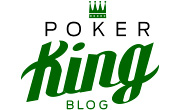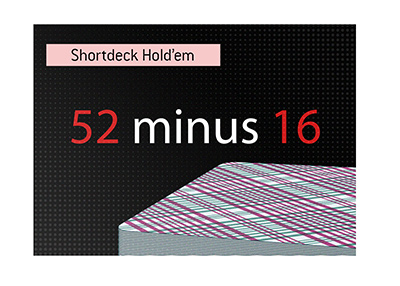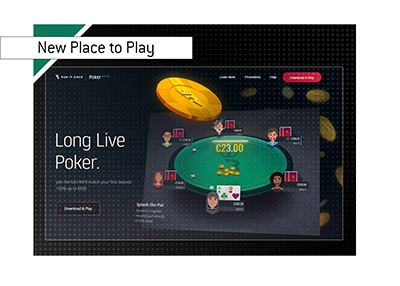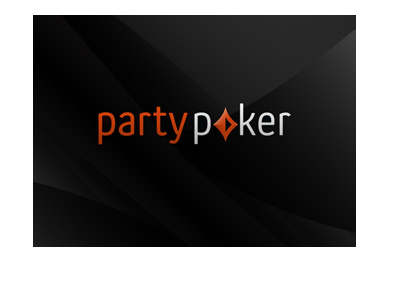 What do Mitch Garber, Howard Lederer, Chris "Jesus" Ferguson and Isai Scheinberg all have in common?
What do Mitch Garber, Howard Lederer, Chris "Jesus" Ferguson and Isai Scheinberg all have in common?They all prove the theory that the real money in poker is made away from the felt. While others are grinding it out everyday to make a living, they are running (or own) online poker rooms and making many millions of dollars. They avoid downswings, bad beats and negative variance - no matter what happens, the rake is still going to flow at their respective poker rooms, and they are still going to make millions.
I was looking at the 2007 annual report that was recently released by Partygaming, and I was struck by just how much money Mitch Garber was making at the company. I knew that he would be doing well, but not THAT well. Maybe I was just naive.
Here's a little background on Garber. Partygaming hired Garber in April of 2006 to be their new CEO. Previous to that, Garber was the CEO of Optimal Payments Inc. His background was as an attorney, and he had the distinction of opening the first ever gaming law practice in Canada. He advised US casino operators and equipment suppliers, and this was likely one of the biggest reasons why he was hired by Partygaming. This information is straight from his company profile.
Anyways, Garber signed a deal in April of 2006 that would run until May of 2009. He would be the new CEO of the company.
The first big "perk" of this deal was a $6 million dollar "signing bonus" that was paid upfront.
His initial deal called for a base salary of one million dollars in 2006 (pro-rated), and a base salary of $1.05 million in 2007.
He received approximately $63k in reimbursements for moving himself and his family to Gibraltar. He was also to have free use of "two furnished properties" in Gibraltar that were estimated to have a rental cost of $150,000 per year.
He was also granted 27 million "nil-cost" options of the company's stock, but he would only receive 7 million of these options if certain benchmarks weren't achieved. A "nil-cost" option is essentially a free share of the company's stock. Once the option has vested, the holder of the option can exercise the option and either hold the shares or sell the shares, without incurring any costs for himself.
Additionally, Garber would be eligible to participate in a bonus program that could see him earn up to 100% of his base salary in additional annual bonuses.
Ok, nothing mentioned so far is too spectacular - it's a fairly standard deal for a new CEO in an existing publicly traded company.
So Garber started in April of 2006 - in late September of 2006, the UIGEA appeared and caused havoc in the online poker industry. Party Poker pulled out of the US market and their stock cratered, trading down from 107.00 (pence) to 45 overnight.
Partygaming's management were extremely, extremely worried that Garber would decide to jump ship and leave the company. I'm not sure whether Garber said that he would leave the company or if Partygaming management figured that it was just a strong possibility. Regardless, Partygaming put on a full-court press to make sure that Garber didn't leave. Partygaming were likely worried that their compensation package wasn't nearly as attractive with a plummeting stock price.
First off, they waived any performance stipulations that were attached to 20 of the original 27 million options that he was granted. So now, no matter what happened with the company, Garber would eventually be able to cash in on 27 million shares of the company's stock, with no cost to himself.
Then, on top of that, Garber was granted an option plan for an additional 15 million "nil-cost" options that would vest in 30 monthly installments, ending in May of 2009.
Then, on top of that, Partygaming management agreed that Garber would receive an additional two million shares from the employees trust if he fulfilled his contract and stayed on until May of 2009.
Then, on top of that, (see a pattern here) Garber was entitled to three million pounds in cash from the Employee's Trust. He would receive this in 30 equal monthly installments if he remained in his position as CEO of the company until May of 2009. This was given to Garber in the hopes that he wouldn't leave the company early.
It doesn't end there. Garber was given an additional two million pounds as a "loyalty bonus" on December 1, 2007. This was Partygaming's way of saying, "Thank you for sticking with the company".
Also, Partygaming decided to make it much easier for company management to earn bonuses. Instead of basing the payout of bonuses on revenue and EBITDA thresholds being met, Partygaming decided to award bonuses based on their "personal objectives" being met, whatever that means. Basically, the bonus scheme was liberalized in order to retain key members of company management.
So what did all of this mean to Mitch Garber's bank account? Let's look at the 2006 and 2007 annual reports, because it's all right there for everyone to see.
In 2006, Garber earned a total of $7.829 million dollars. He received a six million dollar signing bonus, a pro-rated salary of $711,538, a $895,833 "bonus" and $221,979 in "allowance and benefits" that included his accommodations in Gibraltar and moving costs that the company picked up. Garber also exercised 4.08 million of his options into shares of the company, but didn't sell any of the shares as of December 31st, 2006.
2007 is where Garber really started to cash in, as he made a grand total of $16.404 million dollars during the year.
He earned $1.050 million for his base salary. He earned $6.403 million in "retention and loyalty bonuses". He received a $787,000 "annual bonus". He received $179,000 in "allowance/benefits". He also exercised a great deal of his options in the company and sold a substantial portion of his shares, making himself $7.983 million dollars in the process. All told, Garber cleared over $16 million dollars in 2007.
At the end of 2007, Garber still held 8.75 million shares in the company. He also had 20,250,004 "nil-cost" options that had yet to be exercised. In addition, he was to receive an additional two million shares in the company if he remained on until May of 2009. All told, based on the current value of the company's stock, Garber held an estimated $16.9 million in stock and "nil-cost" options.
So in his first 20 months with the company, Mitch Garber had earned an estimated $24.233 million dollars.
A few months ago, Garber announced that he would not be staying on with the company after his contract expired in May of 2009. Partygaming decided that he would still be eligible for all of his perks and benefits until he actually left the company, because they wanted to keep him "incentivized". The only downside for Garber? He wouldn't be receiving a raise on his annual salary - he'd be stuck making $1.050 million per year. The upside is that he kept all of his stock and options in the company, and actually has the potential to make an even larger annual bonus in 2008, up to 120% of his base annual salary.
Garber announced this publicly before the company had found a replacement. Many have attributed this as one of the many reasons why Partygaming's stock has been suffering as of late.
So let's look at 2008 and the last few months of his contract in 2009.
Garber will receive approximately $1.365 million in salary from Jan 1 / 2008 until May of 2009.
He will receive the rest of his three million pound retention bonus (100k pounds per month over the remainder of his contract).
He could conceivably earn another bonus in 2008 (let's guess that he earns $800,000 as a bonus in 2008).
He will receive an additional $200k in "allowances".
And lastly, I am assuming that Garber will aggressively be selling his shares between now and May of 2009, based on his stated intentions not to remain with the company. He'll work his last day with the company and be handed an additional two million shares, to do with as he sees fit.
So let's add this up:
Garber made $24.233 million dollars in 2006 and 2007. He will receive an estimated $5.765 million dollars in additional salary and bonuses before his contract is up. Assuming that Partygaming's stock trades flat between now and May of 2009, and assuming that he decides to sell all of his shares, Garber will receive an additional $16.9 million dollars.
All told, that's an estimated $46.9 million dollars that Garber could clear from his three year contract with the company.
Not a bad gig.
Sources (warning, big *.pdf files) : 2007 Partygaming Annual Report
2006 Partygaming Annual Report
--
Filed Under: Poker Room News
| Miscellaneous Poker Articles



